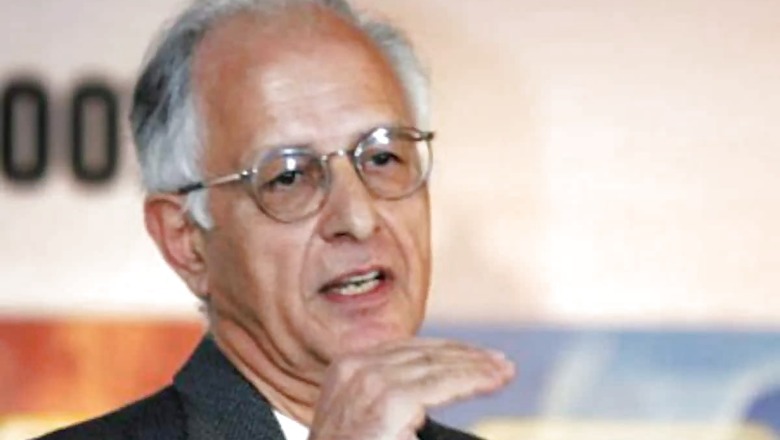
views
Former planning commission member, Arun Maira, in a discussion moderated by the RSS affiliated Dattopant Thengadi Foundation on Wednesday said there was one fundamental question before everyone today, in the context of the powerful – ‘Are you with the powerless or not?’
He said that if people and organisations were to look at issues such as minimum wage and Minimum Support Price (MSP) in a bipartisan manner and support the powerless, “People will try to box us. People will say ‘you’re supporting a political party’. But time has come for all of us to combine our strengths and collectively represent the powerless.”
Time has come, he said, for leaders of all associations to look around and to “look within.” The former India chairman of Boston Consulting Group said, “We need to together build larger democratic movement, to build a fairer economy, in which farmers will get fairer prices, in which Dalits will feel more fairly included.”
Maira’s talk was part of a discussion organised by the Dattopant Thengadi Foundation on ‘Global Wage Report 2020: Mitigation of Socio-Political & Economic Impacts of Rising Inequality Through Wage Subsidy [sic]’.
Maira said the participation of all stakeholders, “every beating heart”, would determine whether a law was good or bad and said the government of the day needed to listen to all the people who were part of the system.
As India tries to recover from the shock of the pandemic, Maira said, the country should decide whether it wanted to develop on the pre-pandemic model or whether it wanted to adopt a different model altogether.
“We don’t want the rich to continue becoming richer while millions of people are living in precarious poverty…Poverty is not being removed as fast as it should be,” Maira said and gave example of the recent incident at Apple’s Wistron facility in Karnataka. He said the production facility had all the makings of a model production facility.
“A large amount of FDI was put in, nearly 10,000 people were employed and the production facility was linked to Apple’s global supply chain. But only a fraction of their total employees were employed on a permanent basis, so the rest were not getting the benefits that they should have been given…We need to ask ourselves, is this the model that we should be looking towards,” Maira asked in the online conference.
He said that there were enough studies to indicate that societies that over the years give their workers better wages end up becoming developed economies with much better human development indices.
“Giving minimum wages is not enough. Societies that acknowledge the right of small workers to be participants in discussion on what the country’s policies should be turn out to have better policies…So we need to see whether those with money should call the shots or whether every beating heart should have an equal say in framing of the policies,” Maira added.
Read all the Latest News, Breaking News and Coronavirus News here


















Comments
0 comment